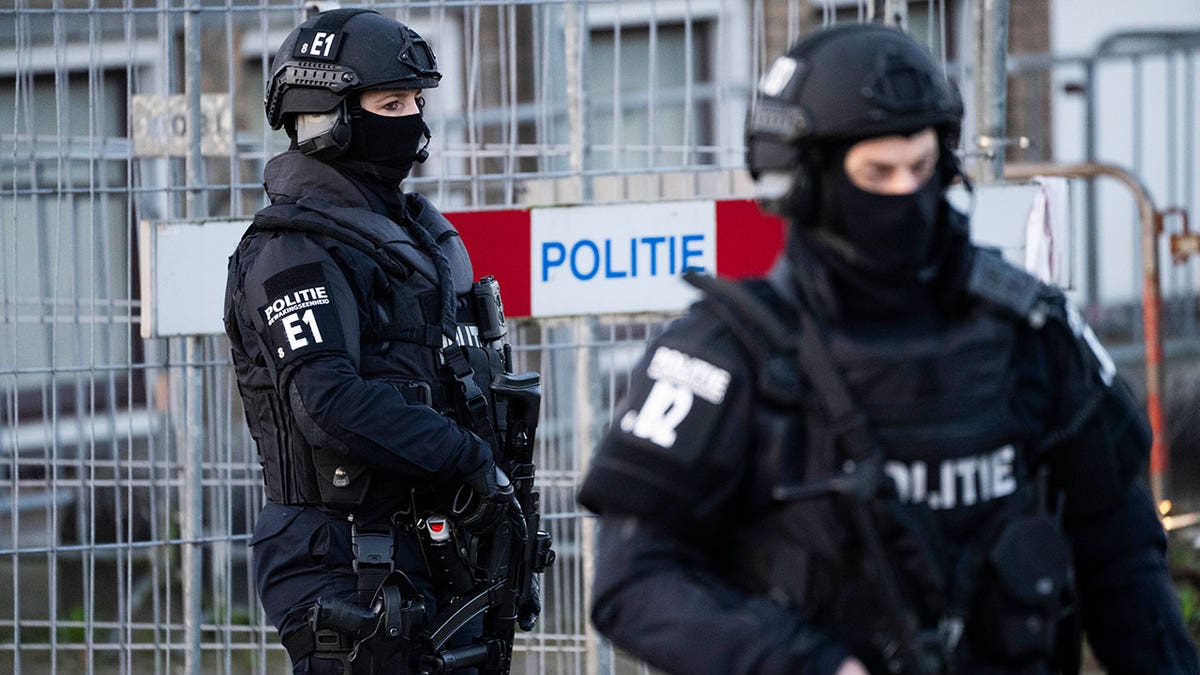'Sophisticated' migrant gangs hiring hackers to carry out cyber crimes in NYC: NYPD
'The Cyber Guy' Kurt Knutsson discusses a 'sophisticated' migrant gang hiring hackers to carry out crimes in New York City.
- A Dutch court has convicted 17 suspects, with three receiving life sentences, including Ridouan Taghi, the gang's leader.
- Taghi, along with other suspects, did not attend the trial's final day due to heavy security measures.
- Taghi was convicted of five murders and labeled the "undisputed leader" of a "murder organization".
A Dutch court convicted 17 suspects on Tuesday in the long-running trial of an underworld gang that planned a string of killings. Judges handed life sentences to three of them, including the gang's "undisputed leader," Ridouan Taghi, once the Netherlands most-wanted fugitive.
The trial and three more murders linked to the case have enthralled and rattled the Netherlands, exposing the deadly reality of the country's drug-fueled criminal underworld.
Taghi and several co-defendants did not attend the final day of their trial at a tightly guarded courthouse on the outskirts of the Dutch capital. Heavily armed police officers wearing body armor, helmets and ski masks patrolled streets around the court as cars carrying some of the defendants swept into an underground parking lot for the hearing.
ALLEGED RINGLEADER OF DUTCH 'KILLING MACHINE' ARRESTED IN DUBAI, POLICE SAY
The court convicted Taghi in five murders and called him the "undisputed leader" of a "murder organization."

Police secure the area as a vehicle carrying suspects arrives at the high security court in Amsterdam, Netherlands, on Feb. 27, 2024. A Dutch court convicted 17 suspects on Tuesday in the long-running trial of an underworld gang that planned a string of killings. (AP Photo/Peter Dejong)
"He decided who would be killed and spared no one," the presiding judge said. "The amount of suffering Taghi caused to the victims and their loved ones is barely imaginable."
The court ruled that Taghi also used extreme violence to intimidate enemies and potential police informants.
"By doing so he prevented people from cooperating with the police. Such terror has a disruptive effect on society," the presiding judge said. Court officials asked media not to identify the judges by name over security concerns.
The brother of a key witness, identified only as Nabil B., his lawyer and a journalist who acted as a confidante for the witness were all killed in the nearly six years since the trial opened.
Lawyer Derk Wiersum was gunned down outside his home in Amsterdam on Sept. 18, 2019. Two men have been convicted of murder in his killing.
Journalist Peter R. de Vries was also shot in Amsterdam as he walked to his car from a television studio on July 6, 2021. He died nine days later of his injuries. Prosecutors have sought life sentences for three of the suspects in his slaying.
Those murders gave the already grim trial "a pitch-black edge," the presiding judge told a packed courtroom.
The judge lamented that De Vries "will never again sit in the press bench" at the court.
Dutch King Willem-Alexander called De Vries' shooting "an attack on journalism, the cornerstone of our constitutional state and therefore also an attack on the rule of law."
Taghi was one of the Netherlands’ most-wanted men until he was arrested in Dubai in 2019 and flown home to face trial. He and other defendants were charged with involvement in six murders and four attempted murders.
The Public Prosecution Service alleged that the defendants were part of a "completely unscrupulous murder organization, which has carelessly and indifferently killed people." They said the fallout from the multiple slayings had "not only been felt for the next of kin, but have also had after-effects more broadly in society."
Lawyers for the suspects had sought their acquittal. The court rejected defense arguments that the trial was unfair and that the suspects had already been convicted in the court of public opinion.
TRIAL BEGINS FOR SUSPECTS IN FATAL SHOOTING OF DUTCH CRIME REPORTER
The court ruled that testimony from Nabil B. was trustworthy and could be used as evidence. The witness himself was also on trial and was sentenced to 10 years, his sentence reduced because of cooperation. Other suspects received sentences ranging from life imprisonment to just under two years behind bars.
Judges said the witness's testimony led to convictions in five murders that otherwise would not have been solved.
But after handing him a reduced sentence, the presiding judge added that he "will have to live with the reality that you will always have to look over your shoulder."
The court also accepted decrypted telephone messages as evidence in their verdicts. Lawyers for the suspects had argued that the evidence could not be used in the trial.
The convictions and sentences can be appealed.

